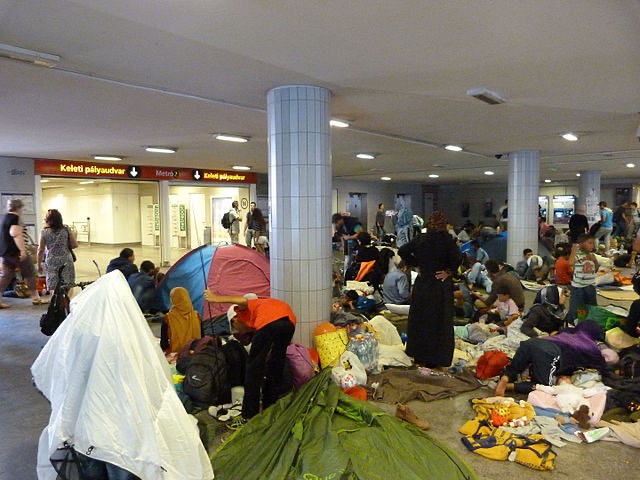Labour is proposing new ‘return hubs’ in the Balkans to process failed asylum seekers. Discover how this plan differs from the Rwanda policy, which countries are involved, and why it’s sparking fierce debate.
Introduction
The Labour Party is reportedly exploring a radical shift in the UK’s immigration strategy: relocating failed asylum seekers to processing centres in the western Balkans. This plan, which has already triggered intense political debate, would see migrants moved out of the UK after all legal appeals have been exhausted—a clear departure from the Conservative government’s much-criticised Rwanda scheme.
Is this a more “practical and lawful” solution to the UK’s immigration crisis, or a rebranded version of offshoring that still raises serious ethical concerns?
Labour’s Plan: What Are ‘Return Hubs’?
The term ‘return hubs’ refers to overseas facilities where individuals whose asylum applications have been rejected are sent temporarily before deportation. Under Labour’s proposed plan, these centres would be located outside the UK, likely in the western Balkans, and managed in coordination with international partners.
This isn’t about detaining all asylum seekers—it’s a targeted approach aimed at individuals who have no legal right to remain in the UK after a full review and appeal process.
Which Countries Are Involved?
According to reports, the UK is exploring partnerships with countries including:
- Albania
- Serbia
- Bosnia and Herzegovina
- North Macedonia
These nations have been approached because of their geographical proximity to Europe, existing EU cooperation, and growing roles in global migration management frameworks.
How the Plan Differs from the Rwanda Scheme
It’s impossible not to draw comparisons to the Rwanda policy championed by the previous Conservative government. However, Labour is stressing a key distinction:
- Rwanda: Sought to deport asylum seekers before their claims were processed.
- Return hubs: Would only relocate people after all legal appeals have failed.
This shift aims to make the scheme more legally defensible, less controversial, and aligned with international human rights standards.
Why Is Labour Proposing This Policy Now?
The UK has faced growing pressure to reduce illegal crossings, especially via small boats across the English Channel. With more than 5,000 arrivals already in 2025, the backlog in the asylum system continues to grow—leading to costly accommodation, legal delays, and public frustration.
Labour’s leadership believes this plan offers:
- A deterrent to dangerous crossings
- A cost-effective alternative to long-term detention in the UK
- An approach more in line with European Union strategies
The EU Connection: Europe’s Migration Strategy Shift
Labour’s plan closely mirrors recent moves by the European Union, which has endorsed the creation of ‘return hubs’ in third countries. This includes Italy’s agreement with Albania, where two migrant processing centres are being constructed to manage arrivals from the Mediterranean.
The EU views such hubs as part of a broader “externalisation” strategy—processing migrants closer to their countries of origin and sharing responsibility with neighbouring nations.
Criticism and Human Rights Concerns
Despite claims of legality and pragmatism, critics argue that Labour’s proposal could still violate international norms, especially the 1951 Refugee Convention. Human rights groups worry that:
- Vulnerable individuals may face poor conditions in offshore centres
- Legal representation may be limited
- Deportation proceedings could bypass necessary protections
Organisations like Amnesty International and the Refugee Council have already expressed concerns that this may amount to “outsourcing moral responsibility.”
Legal Precedents and Challenges
The plan’s success could hinge on international law and the host countries’ domestic policies. Italy’s arrangement with Albania—seen as a blueprint for Labour’s model—has already faced legal pushback.
Albanian courts challenged the detention of migrants on their soil, citing insufficient safety protocols and unclear jurisdictional lines. Any UK agreement would face similar scrutiny, especially in light of past legal failures like the UK’s blocked Rwanda flights.
Public Opinion and Political Fallout
Public sentiment around immigration remains divided:
- Many voters support firm but fair measures to stop illegal immigration.
- Others view offshoring policies as inhumane and legally dubious.
Labour’s proposal may appeal to centrist and swing voters looking for effective reform without the harsh optics of the Rwanda plan. But it could also alienate progressive supporters and refugee rights advocates, sparking internal party friction.
Potential Impact on UK-Balkan Relations
Diplomatically, this plan would require bilateral agreements, possibly financial incentives, and guarantees of human rights protections.
The Balkan states, many of which are seeking EU membership or favour, could view cooperation as a lever for diplomatic gain. But they may also be wary of public backlash and regional instability linked to being perceived as a “dumping ground” for Europe’s migration challenges.
Conclusion
Labour’s proposal to send failed asylum seekers to Balkan ‘return hubs’ is a bold attempt to rewrite the UK’s immigration playbook. It seeks to balance public demand for enforcement with international legal obligations, offering an alternative to the controversial Rwanda plan.
Whether it succeeds will depend on legal feasibility, international cooperation, and political will. As the UK faces continued migration pressures, all eyes are now on Labour’s next move—and how it will define the future of British asylum policy.
FAQs
1. What is Labour proposing for failed asylum seekers?
Labour plans to relocate individuals who have been denied asylum to overseas ‘return hubs’ in the Balkans.
2. How is this different from the Rwanda scheme?
Unlike the Rwanda plan, which removed asylum seekers before processing, Labour’s hubs would be used only after all legal appeals are completed.
3. Which countries might host these return hubs?
Countries reportedly under consideration include Albania, Serbia, Bosnia and Herzegovina, and North Macedonia.
4. Are there legal concerns?
Yes, critics warn that such schemes may violate human rights and international refugee laws, depending on how they’re implemented.
5. Will this policy become law?
Labour is still exploring the plan and has not formally introduced legislation. It would require international agreements and parliamentary approval.



